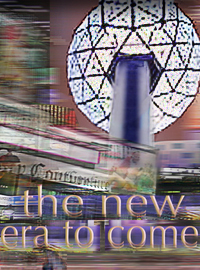
|
On January 3, the members of the 112th Congress will be sworn into office – and the first act of the Obama Presidency will have come to an end.
|
|
| While the eyes of the nation will be fixed on Times Square on New Year’s Eve, the real epochal shift will be happening 200 miles to the south in Washington D.C. Although calendars will flip once the ball drops in Midtown Manhattan, a profound shift of much greater historical significance will be afoot in the nation’s capital. On January 3, the members of the 112th Congress will be sworn into office – and the first act of the Obama Presidency will have come to an end.
In the new era to come, Republicans will control the House of the Representatives and essentially exercise veto power over the actions of the Senate. And while pundits have exhaustively chronicled what this change says about the mood of the country, they’ve been less thorough in examining the implications for the next two years of the presidency. In short, President Obama must begin a second administration in the early days of 2011.
The man who occupied the White House for most of 2009 and 2010 would be nothing more than a political afterthought were he to resurface in the atmosphere created by the new composition of the legislative branch. This will be a Congress that would almost certainly have defeated the stimulus bill and ObamaCare, one that would never have brought cap and trade to a vote. For Obama – who is liberal as a noun, not an adjective – this represents more than a challenge to his policies. It represents a challenge to his very identity.
By electing an overwhelmingly Democratic congress in 2008, the voters who were promised a new era of bipartisanship by President Obama released him of the institutional constraints that would have guaranteed it. As a result, voters discovered that Obama’s definition of transcending partisanship was pretending that the other party doesn’t exist.
If you doubt this, consider the fact that the three signature pieces of legislation signed by Obama in the 111th Congress – the stimulus, ObamaCare and financial reform – managed to attract a grand total of nine Republican votes in Congress. The liberal explanation that this was the product of planned GOP intransigence doesn’t hold water. Most members of Congress vote on the basis of reelection, not ideology. And judging by the results of the 2010 election, most Republican members voted correctly.
Moving into 2011, this leaves Barack Obama in a bind. For two years, the president was engaged in baring his soul to the electorate. At the end of that time, the electorate found it wanting. Having revealed his true colors, the president can now be either genuine and unpopular or contrived and minimally palatable. Neither provides a particularly potent rationale for reelection. And so, as the curtain rises on Obama’s second act, one question looms larger than any other: Can a president who rose to power on the promise of transcending Washington’s limits retain it by transcending his own? |


